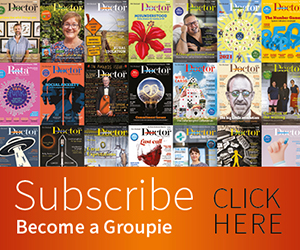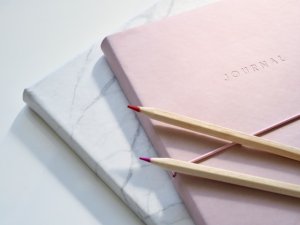Respiratory physician Lutz Beckert considers chronic obstructive pulmonary disease management, including the prevention of COPD, the importance of smoking cessation and pulmonary rehabilitation, and the lifesaving potential of addressing treatable traits. He also discusses the logic of inhaler therapy, moving from single therapy to dual and triple therapy when indicated, as well as other aspects of management
Healing power of grace, belief and kaitiakitanga
Healing power of grace, belief and kaitiakitanga

In a deeply personal speech to primary care, Lucy O’Hagan explores the profound impact of compassion and trust in medicine
Kaitiaki; akiaki te ti – literally, to draw out the light in the other person. Find the light and turn it on
It was an honour to be asked to give the oration at GP24: Conference for General Practice Fellowship and Awards ceremony. Here is an excerpt from my talk.1
“For many years, I have visited a man in his hut. He suffers greatly. He has pain everywhere and nowhere. Nothing is wrong, and nothing is right, and indeed, what ails him is still a mystery despite my regular visits.
“He never seems to get better, that man in his hut with no power and one cold tap and a long-drop toilet up a grass path that I have managed to avoid using, despite him offering me the convenience of it many times.
“He regularly requests me but does not want anything I offer; all my tests, medications, specialist referrals and even acceptance and commitment therapy seem repugnant to him, so I only occasionally speak, usually a question, although sometimes I get away with a wondering.
“I mostly just sit in his ancient armchair and listen to matters that seem unconnected. I’ve often wondered if I might be more helpful to him if I took my gloves and multipurpose cleaner and wiped down the inside of this long-drop tin shack to make the toilet seat more appealing to the visitors that do not come these days, but might come if they didn’t have to face squatting above the dark cavernous collection of his shit in a hole but could in fact relax on a clean seat.
“And I get them, those visitors that don’t come. It’s hard to swallow tea from a cup that’s been rinsed in a bucket of grey water.
“Despite these strange, perplexing, going-nowhere visitations, where I too felt vaguely violated, I found myself growing to like him.
On one particular visit, in which I was subjected to the usual rank and spittle and sour milk, but during which we also managed to laugh together at the utter silliness of the world beyond, on that particular day that seemed no different to the others, just as I put that teacup to my mouth and swallowed, out of the blue, he wept.
“I’ve always wondered if we could have got there a bit quicker.”
Today, I want to talk about grace and belief. Grace and belief are not words that are often used in the same sentence as medicine or general practice. So, I need to take you on a slightly circular journey to bring you with me.
I have been very fortunate to do postgraduate study in the social science of medicine: the philosophical basis of general practice, medical anthropology and narrative practice. This study has been inspirational and thought-provoking and has allowed me to step back from the world of tick boxes and performance targets, 15-minute craziness and my overflowing inbox to reconsider what really matters.
This world of Western academia has profoundly enriched my thinking, but this year, I have challenged myself with something new: a course called kaitiakitanga, a mātauranga Māori way of seeing relationships of care and support. This might be as a GP or mentor or teacher, but we can also be kaitiaki for our friends, colleagues and our family.
I have committed to attending eight weekend noho marae in eight months. I am in a wharenui at a wānanga with 45 people. I am one of only three Pākehā.
I am the only doctor. I am “other”, but I am experiencing manaakitanga.
I am immersed in another way of thinking and being and learning. There are no PowerPoints, no bullet points. We are honouring an oral tradition, learning as a collective that holds all of us.
In my culture, we declare, “I think, therefore I am”, but in this place, we embody, “I belong, therefore I am.”
We wānanga the values and principles that might guide us as kaitiaki. At times, I’m floating in a sea of kupu, absorbing nuanced, multidimensional meaning.
Kaitiaki; akiaki te ti – literally, to draw out the light in the other person. Find the light and turn it on. Imagine if we had a performance standard for that.
Aroha. Aro, pay attention to. Ro, inner. Ha, life force, breath. Aroha, pay attention to the inner life force. Aroha, to build a bridge, reconnecting the disconnected.
Whakawhanaungatanga. Whaka, to cause something to happen, intend. Whanaunga, a blood relative, kin. Tanga, quality of. Imagine if we saw each patient as our metaphorical human kin?
Manaakitanga. To manaaki the patient we might greet, encourage, or grow their mana.
Whakarongo, to listen but also to hear, to taste, smell and to sense. Perhaps whakarongo, this sensing, is our most profound skill in our consultations?

But what I am aware of most is that a spiritual life is in the whare, the kōrero is seamlessly woven with wairua, tipuna, Papatūānuku and Ranginui. We sense and respond to the mauri in the room. We are encouraged to think about seeing our kaitiaki role as creating mauriora, a vibrant, energetic, engaged and positive state.
I was brought up Catholic, so spirituality is not altogether unfamiliar, but I realise that the world I inhabit now is very secular. The values in my culture are success, a better car, a fancier holiday. We seldom discuss how to be a good human being. We do not talk of the soul.
I drive home from the wānanga both exhausted and energised. I have the feeling I have passed through another cultural world and now I am circling back around to my own knowing, but I am changed. What does this all mean in my world, for my work as a GP?
And the words that floated into my head were grace and belief. Being a GP requires grace. Grace means to be calm, at ease, witnessing the suffering that walks through the door. To be graceful in a consultation might mean we tread lightly and nimbly, steady in the face of whatever comes.
Belief is hope, trust that things can get better, belief that this patient has the capacity to step forward into a new story. Belief that some power bigger than us will spread some magic. And magic happens. The man in his shed cries and tells his story.
Belief might be the most powerful medicine we have.
Lucy O’Hagan is a medical educator and specialist GP working in the Wellington region
TELL US WHAT YOU THINK
Send a Letter to the Editor to editor@nzdoctor.co.nz
We're publishing this article as a FREE READ so it is FREE to read and EASY to share more widely. Please support us and our journalism – subscribe here
One of the benefits of subscribing is you will also be able to share your thoughts about what you read with others in our Comment Stream. You can also take notes on what you read with Capture
- Listen to Lucy O’Hagan’s full speech at GP24: Conference for General Practice at tinyurl.com/Lucy-watch. It starts at one hour and 37 mins








![Barbara Fountain, editor of New Zealand Doctor Rata Aotearoa, and Paul Hutchison, GP and senior medical clinician at Tāmaki Health [Image: Simon Maude]](/sites/default/files/styles/thumbnail_cropped_100/public/2025-03/Barbara%20Fountain%2C%20editor%20of%20New%20Zealand%20Doctor%20Rata%20Aotearoa%2C%20and%20Paul%20Hutchison%2C%20GP%20and%20senior%20medical%20clinician%20at%20T%C4%81maki%20Health%20CR%20Simon%20Maude.jpg?itok=-HbQ1EYA)
![Lori Peters, NP and advanced health improvement practitioner at Mahitahi Hauora, and Jasper Nacilla, NP at The Terrace Medical Centre in Wellington [Image: Simon Maude]](/sites/default/files/styles/thumbnail_cropped_100/public/2025-03/2.%20Lori%20Peters%2C%20NP%20and%20advanced%20HIP%20at%20Mahitahi%20Hauora%2C%20and%20Jasper%20Nacilla%2C%20NP%20at%20The%20Terrace%20Medical%20Centre%20in%20Wellington%20CR%20Simon%20Maude.jpg?itok=sUfbsSF1)
![Ministry of Social Development health and disability coordinator Liz Williams, regional health advisors Mary Mojel and Larah Takarangi, and health and disability coordinators Rebecca Staunton and Myint Than Htut [Image: Simon Maude]](/sites/default/files/styles/thumbnail_cropped_100/public/2025-03/3.%20Ministry%20of%20Social%20Development%27s%20Liz%20Williams%2C%20Mary%20Mojel%2C%20Larah%20Takarangi%2C%20Rebecca%20Staunton%20and%20Myint%20Than%20Htut%20CR%20Simon%20Maude.jpg?itok=9ceOujzC)
![Locum GP Helen Fisher, with Te Kuiti Medical Centre NP Bridget Woodney [Image: Simon Maude]](/sites/default/files/styles/thumbnail_cropped_100/public/2025-03/4.%20Locum%20GP%20Helen%20Fisher%2C%20with%20Te%20Kuiti%20Medical%20Centre%20NP%20Bridget%20Woodney%20CR%20Simon%20Maude.jpg?itok=TJeODetm)
![Ruby Faulkner, GPEP2, with David Small, GPEP3 from The Doctors Greenmeadows in Napier [Image: Simon Maude]](/sites/default/files/styles/thumbnail_cropped_100/public/2025-03/5.%20Ruby%20Faulkner%2C%20GPEP2%2C%20with%20David%20Small%2C%20GPEP3%20from%20The%20Doctors%20Greenmeadows%20in%20Napier%20CR%20Simon%20Maude.jpg?itok=B0u4wsIs)
![Rochelle Langton and Libby Thomas, marketing advisors at the Medical Protection Society [Image: Simon Maude]](/sites/default/files/styles/thumbnail_cropped_100/public/2025-03/6.%20Rochelle%20Langton%20and%20Libby%20Thomas%2C%20marketing%20advisors%20at%20the%20Medical%20Protection%20Society%20CR%20Simon%20Maude.jpg?itok=r52_Cf74)
![Specialist GP Lucy Gibberd, medical advisor at MPS, and Zara Bolam, urgent-care specialist at The Nest Health Centre in Inglewood [Image: Simon Maude]](/sites/default/files/styles/thumbnail_cropped_100/public/2025-03/7.%20Specialist%20GP%20Lucy%20Gibberd%2C%20medical%20advisor%20at%20MPS%2C%20and%20Zara%20Bolam%2C%20urgent-care%20specialist%20at%20The%20Nest%20Health%20Centre%20in%20Inglewood%20CR%20Simon%20Maude.jpg?itok=z8eVoBU3)
![Olivia Blackmore and Trudee Sharp, NPs at Gore Health Centre, and Gaylene Hastie, NP at Queenstown Medical Centre [Image: Simon Maude]](/sites/default/files/styles/thumbnail_cropped_100/public/2025-03/8.%20Olivia%20Blackmore%20and%20Trudee%20Sharp%2C%20NPs%20at%20Gore%20Health%20Centre%2C%20and%20Gaylene%20Hastie%2C%20NP%20at%20Queenstown%20Medical%20Centre%20CR%20Simon%20Maude.jpg?itok=Z6u9d0XH)
![Mary Toloa, specialist GP at Porirua and Union Community Health Service in Wellington, Mara Coler, clinical pharmacist at Tū Ora Compass Health, and Bhavna Mistry, specialist GP at Porirua and Union Community Health Service [Image: Simon Maude]](/sites/default/files/styles/thumbnail_cropped_100/public/2025-03/9.%20Mary%20Toloa%2C%20Porirua%20and%20Union%20Community%20Health%20Service%20in%20Wellington%2C%20Mara%20Coler%2C%20T%C5%AB%20Ora%20Compass%20Health%2C%20and%20Bhavna%20Mistry%2C%20PUCHS%20CR%20Simon%20Maude.jpg?itok=kpChr0cc)